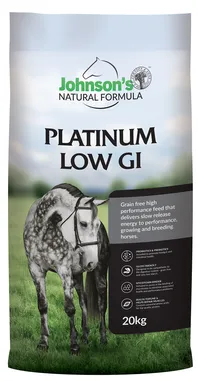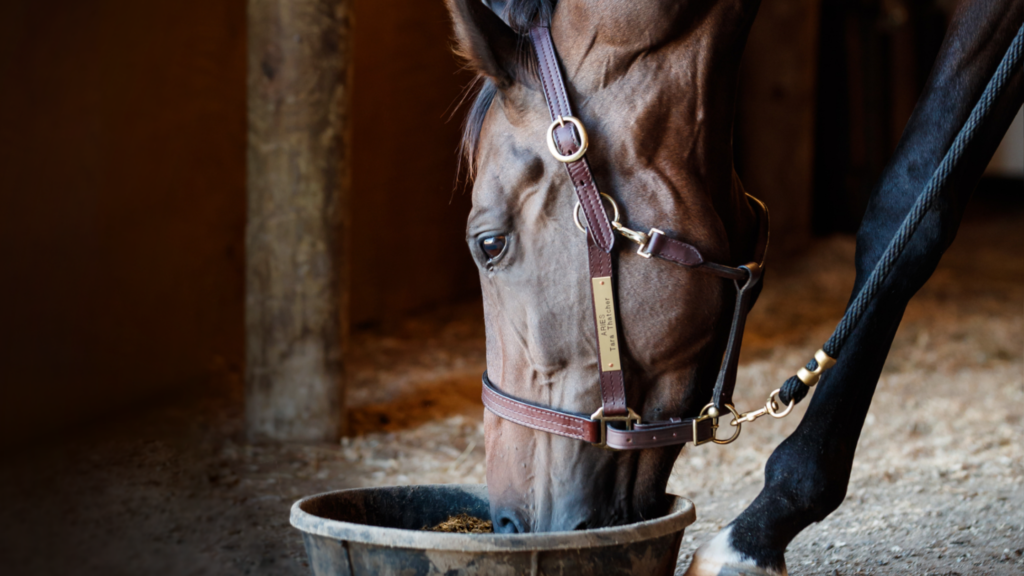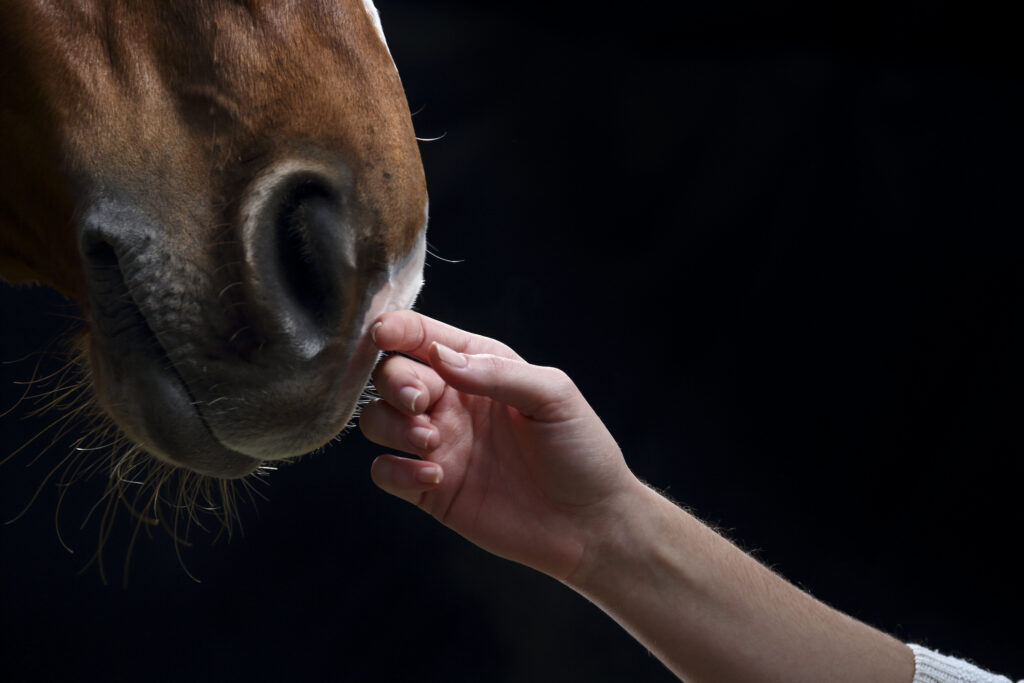Managing anxiety in horses is a challenge that many owners face, as it can manifest in various behaviours such as restlessness, spookiness, or even aggression. While environmental factors, training, and genetics play roles in a horse’s anxiety levels, one significant and often overlooked contributor is diet. Understanding how what you feed your horse affects its mental well-being is crucial in managing and reducing anxiety.
Starch, commonly found in grains like oats, corn, and barley, is a staple in many horse feeds due to its high energy content. When horses consume a high-starch diet, the starch is broken down into glucose, causing a rapid increase in blood sugar levels. This spike in blood sugar can result in a sudden surge of energy, which often translates into hyperactivity or anxious behaviour.
Studies have shown that horses on high-starch diets tend to exhibit stronger stress responses, such as elevated cortisol levels and increased heart rates. This is because the quick release of energy from starch can overstimulate the horse, making it more reactive and prone to anxiety. As prey animals, horses have a natural flight response, and when their energy levels are high, they may overreact to stimuli that would otherwise be insignificant.
Switching to a low-starch diet can have a calming effect on a horse’s temperament. Low-starch diets primarily consist of fibre-rich feeds, such as forages, hay, and specially formulated low-starch pellets. These feeds provide a slower, more stable release of energy, helping to maintain consistent blood sugar levels and reducing the likelihood of energy spikes that can lead to anxious behaviour.
A low-starch diet also supports better gut health. Horses are naturally designed to digest large amounts of fibre, and when fed high-starch diets, the excess starch that isn’t digested in the small intestine can ferment in the hindgut, disrupting the balance of gut flora. This imbalance can lead to digestive issues such as colic, ulcers, and laminitis, all of which can increase stress and anxiety in horses.
Forage, including hay and pasture, should be the cornerstone of any horse’s diet. Not only does forage provide essential nutrients, but it also plays a vital role in keeping horses calm and satisfied. Horses are natural grazers, and having access to forage throughout the day helps mimic their natural feeding behaviour, reducing boredom and the anxiety that can arise from prolonged periods without food.
Moreover, the act of chewing forage stimulates saliva production, which helps buffer stomach acid. Horses produce stomach acid continuously, and without adequate forage, the acid can cause discomfort and potentially lead to ulcers. This discomfort can contribute to anxious behaviour, as the horse may be in constant, low-level pain.
For horses prone to anxiety, supplementing their forage with a low-starch feed can be highly beneficial. Johnsons Natural Formula PLATINUM LOW GI is an excellent choice for this purpose. This feed is specifically formulated to be low in starch and glycaemic index, providing steady, slow-releasing energy that helps maintain a calm demeanour. Platinum Low GI supports overall health and well-being without the risk of sudden energy spikes that can trigger anxious behaviour.
In addition to low-starch feeds, minerals such as magnesium, which is includes in Johnson’s Natural Formula PLATINUM LOW GI can further support a horse’s mental well-being. Magnesium has a calming effect on the nervous system and can help reduce anxiety, muscle tension, and nervous behaviour, particularly in horses that are already prone to these issues. B vitamins, particularly Thiamine (B1), are also thought to play a role in helping calm anxious horses and as an aid to stressful situations such as travel or competition. Vitamin B12 is produced by gut bacteria provided enough Cobalt is present in the diet. A deficiency in Vitamin B12 can result in loss of appetite, fatigue and poor performance.
When a healthy bacterial population in the hindgut is supported through a high fibre/low starch diet, horse’s will synthesise the bulk of their required B vitamins. Platinum Low GI contains added B vitamins and their precursors, to ensure horses are supported even if their own supply has been diminished due to poor quality forage, restricted availability to forage, high stress situations, illness and reduced appetite, antibiotic use, or high parasite burdens.
It’s important to recognise that a horse’s diet affects more than just its physical health; it also has a significant impact on mental well-being. An anxious horse is not just challenging to handle; it may also be suffering from discomfort or nutritional imbalances. By carefully managing your horse’s diet, you can address some of the root causes of anxiety, leading to a happier, healthier, and more relaxed horse.
If your horse is showing signs of anxiety, such as restlessness, spookiness, or nervousness, consider reevaluating its diet. Transitioning to a low-starch, high-fibre diet, like Johnsons Natural Formula PLATINUM LOW GI, could be the key to reducing anxiety and improving your horse’s quality of life.





